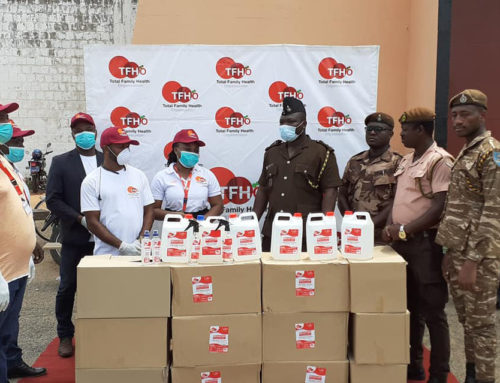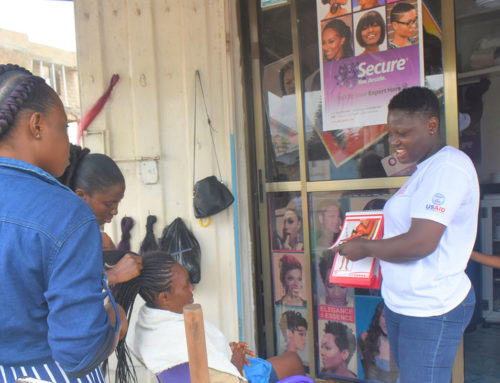“In Ghana, you are able to reach a lot of people through TV.” Emefa Akosua Adeti is sitting in the TFHO office as the air conditioning unit whirs, after fighting through the end-of-day traffic. She has been working for a TV station in Accra for the last 4 years.
Emefa cares about reaching people with education, and likes to learn about their own stories, too. “I’m talkative, I like to research,” she says. Since connecting with PSI through the office’s local marketing team, Emefa has facilitated over 10 awareness events on family planning for Ghanaian women. The work is important to her, and for Ghana.
“In the central region, there’s a high rate of teenage pregnancy, girls drop out from school, and there is child prostitution. Child prostitution,” she repeats somberly.
The events are called “Secure Girls Talk,” named after the Secure oral contraceptive brand that TFHO owns, funded by the second phase of USAID’s Support for International Family Planning Organizations (SIFPO II) project. Emefa acts as the host, engaging with the audience and sharing information about family planning options. She works with a Family Planning Expert and a Clinical Psychologist for each event.
The sort of ‘sex ed’ basics that the talks cover is not taught directly in schools, although Emefa thinks it should be. “Our culture makes it quite difficult to talk about sex…so people on their own take up the task.”
The Ghanaian society is generally opposed to talking about sex with young people and certainly does not want them to be sexually active. But Emefa says that common knowledge demonstrates that the prevailing attitude has not prevented the practice. So she has stepped up. For her, “you can do whatever you want, just don’t ruin your future.”
Emefa has facilitated Secure Girls’ Talk programs with TFHO at universities in and around Accra, and in rural communities farther away. She said that the young women at university events were a bit shy to engage but were eager to learn and apply the information.
“When it came to rural areas, though, that one was a bit shaky,” she confesses, although it’s hard for one to imagine a moment where Emefa did not have her full confident glow. Among rural communities where the events are held, misconceptions about certain contraceptive methods are pervasive and the prevailing power structures do not help either. “The women liked to take decisions half and half with their husband” but Emefa would tell them “you are in charge, but you can actively involve your husband.”
Practically radiating from her coordinating electric blue earrings and sleek work dress, you get an even better understanding of the source of Emefa’s aplomb when she talks about the role she plays. “By the end of each program, I am empowered myself…It gives me a lot of joy.”
And her work does not stop when she’s away from TFHO. She’s the “guru” among her friends, too. “Every day I find myself educating people around me.”
Emefa is hopeful that changing attitudes are continuing to spread, and the impact will not be limited to public health. “I see this as more than a family planning thing, because before you can have someone understand family planning, you have to empower them first.”





